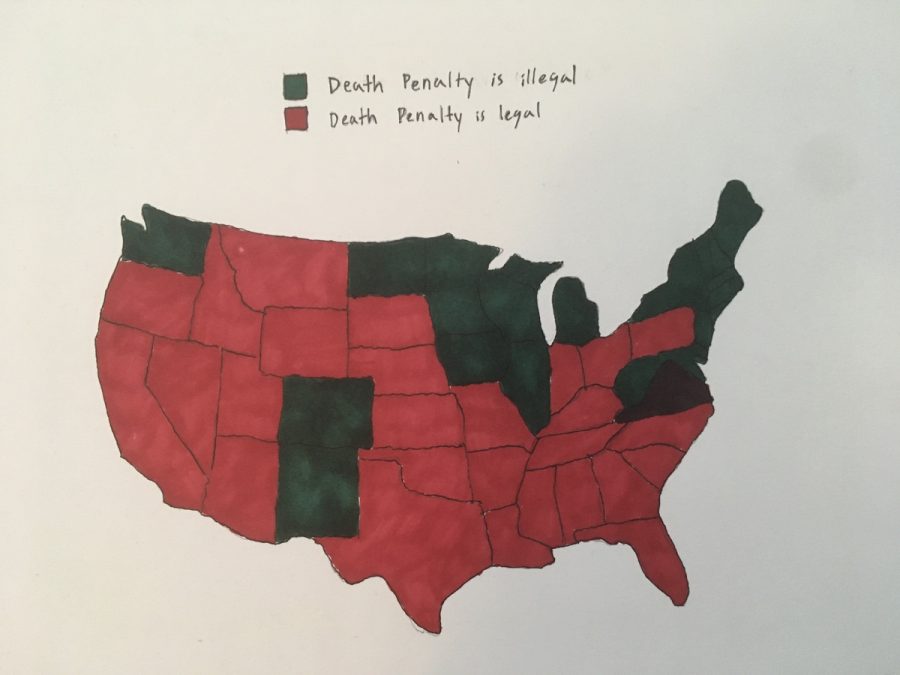Virginia makes the right choice in ending the death penalty
With the passing of new legislation, Virginia has become the 23rd state and the first southern state in the nation to abolish the death penalty. The law was recently passed in both the Virginia House and Senate, and Governor Ralph Northam signed the bill in late March.
While Virginia has not had any state executions since 2017, the death penalty is a significant part of the state’s history. Since the Supreme Court deemed the death penalty constitutional in 1976, Virginia has executed 113 prisoners, second to only Texas with 569 executions (Statista.com). Currently there are two men on death row in Virginia — Anthony Juniper and Thomas Porter — who will be given life sentences without parole.
There are many positives that come with this legislation. First, it prevents people who have been wrongfully convicted from being put to death. There was one case in Virginia’s history in which a man escaped state execution by a matter of days due to new evidence from DNA testing. His name was Earl Washington and he was accused of the rape and murder of a woman named Rebecca Lynn. Washington was reported as having an IQ of 69 and while being interrogated by police officials, he confessed to a total five crimes in two days. During analysis of Washington, it was revealed that he had given affirmative answers to everything the police had asked in order to gain their approval. He did not actually understand what was happening or what he was admitting to. This was evident during the case as well, especially since there was no evidence linking Washington to the murder of Rebecca Lynn besides his own confession(National Registry of Exonerations). If Washington had been given the death penalty, Virginia would have taken an innocent man’s life. It begs the question: has Virginia put innocent men to death in the past? And, if so, how many times has this happened?
When it comes to the death penalty, it may be something people want (55 percent of Americans supported the death penalty in 2020 according to a Gallup Poll), but it is not something that is necessary in society. A major argument of death penalty supporters is that it deters crime. However, there has never been credible evidence to show that the death penalty deters crime any more than life imprisonment.
Another argument for the death penalty is that it is cheaper to kill a criminal than pay to keep him alive in life imprisonment. This is another common misconception. According to thebalance.com, it costs Florida $51 million a year more to enforce the death penalty than it would to give each first-degree murderer in the state life in prison. In North Carolina, it costs 2.16 million dollars more to execute someone than sentence them to life imprisonment. Based on many statistics, life imprisonment is favorable to the death penalty in virtually every situation. While it may be a natural feeling for people to want a horrible person to be executed, it doesn’t mean that it is the right choice, especially with how expensive and complicated the process can be.
There are a lot more negatives associated with the death penalty than positives. There are times when horrible people commit horrible acts against others. But execution doesn’t solve anything and is often unnecessary and dangerous. Keeping someone imprisoned for life has the same punishing effect. And the benefit of the abolition of the death penalty is that if it turns out someone was wrongfully convicted of a crime, the state can always let them out of prison. It’s not perfect, but it’s a lot better than an innocent man being killed.
Virginia has made the right choice in passing legislation to end the death penalty and hopefully its decision can persuade other states to make a change as well. As of right now, only 23 states have abolished the death penalty. But, looking toward the future, more and more Americans seem to be changing their stance on the issue, and it won’t be too long before the country can say goodbye for good.













